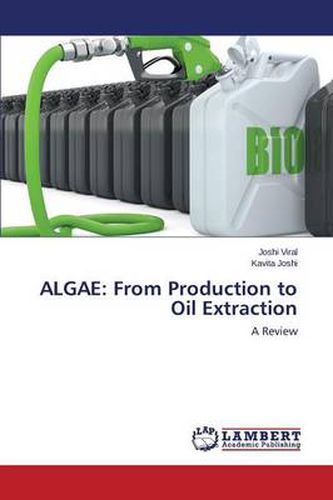Readings Newsletter
Become a Readings Member to make your shopping experience even easier.
Sign in or sign up for free!
You’re not far away from qualifying for FREE standard shipping within Australia
You’ve qualified for FREE standard shipping within Australia
The cart is loading…






This title is printed to order. This book may have been self-published. If so, we cannot guarantee the quality of the content. In the main most books will have gone through the editing process however some may not. We therefore suggest that you be aware of this before ordering this book. If in doubt check either the author or publisher’s details as we are unable to accept any returns unless they are faulty. Please contact us if you have any questions.
Global biofuel production has been increasing rapidly over the last decade, but the expanding biofuel industry has recently raised important concerns. In particular, the sustainability of many firstgeneration biofuels (primarily from food crops such as grains, sugar cane and vegetable oils) has been increasingly questioned over concerns such as reported displacement of food crops, effects on the environment and climate change.The increasing criticism of the sustainability of many first-generation biofuels has raised attention to the potential of socalled second-generation biofuels.However, due to food vs. fuel competition as well as land consumption of these biofuels, they have brought much controversy and debate on their sustainability In this respect, cultivation of macroalgae at sea water or industrial or other waste water provides a possible solution for this energy issue. Microalgae are single-cell, photosynthetic organisms known for their rapid growth and high energy content. Some algal strains are capable of doubling their mass several times per day.
$9.00 standard shipping within Australia
FREE standard shipping within Australia for orders over $100.00
Express & International shipping calculated at checkout
This title is printed to order. This book may have been self-published. If so, we cannot guarantee the quality of the content. In the main most books will have gone through the editing process however some may not. We therefore suggest that you be aware of this before ordering this book. If in doubt check either the author or publisher’s details as we are unable to accept any returns unless they are faulty. Please contact us if you have any questions.
Global biofuel production has been increasing rapidly over the last decade, but the expanding biofuel industry has recently raised important concerns. In particular, the sustainability of many firstgeneration biofuels (primarily from food crops such as grains, sugar cane and vegetable oils) has been increasingly questioned over concerns such as reported displacement of food crops, effects on the environment and climate change.The increasing criticism of the sustainability of many first-generation biofuels has raised attention to the potential of socalled second-generation biofuels.However, due to food vs. fuel competition as well as land consumption of these biofuels, they have brought much controversy and debate on their sustainability In this respect, cultivation of macroalgae at sea water or industrial or other waste water provides a possible solution for this energy issue. Microalgae are single-cell, photosynthetic organisms known for their rapid growth and high energy content. Some algal strains are capable of doubling their mass several times per day.